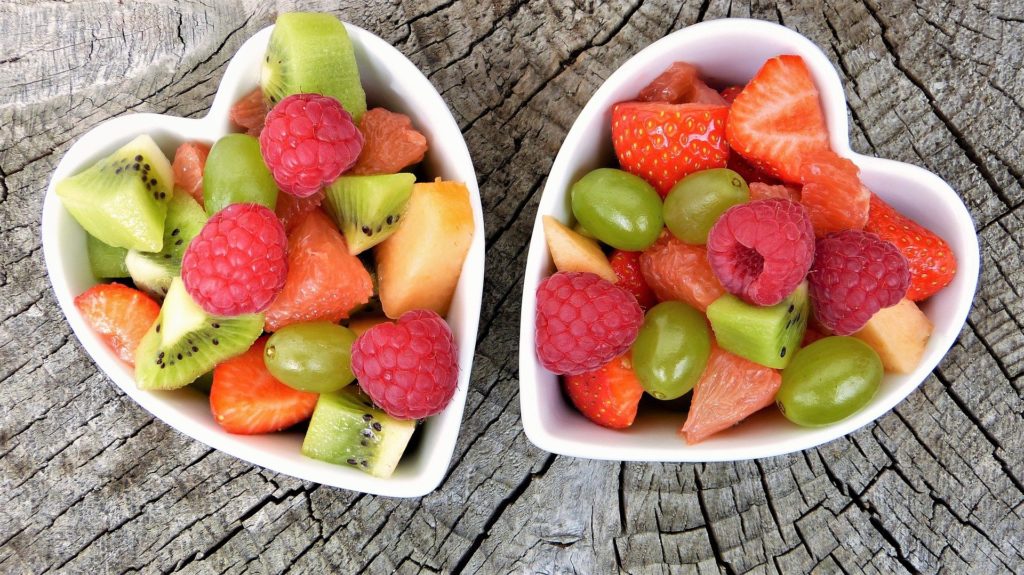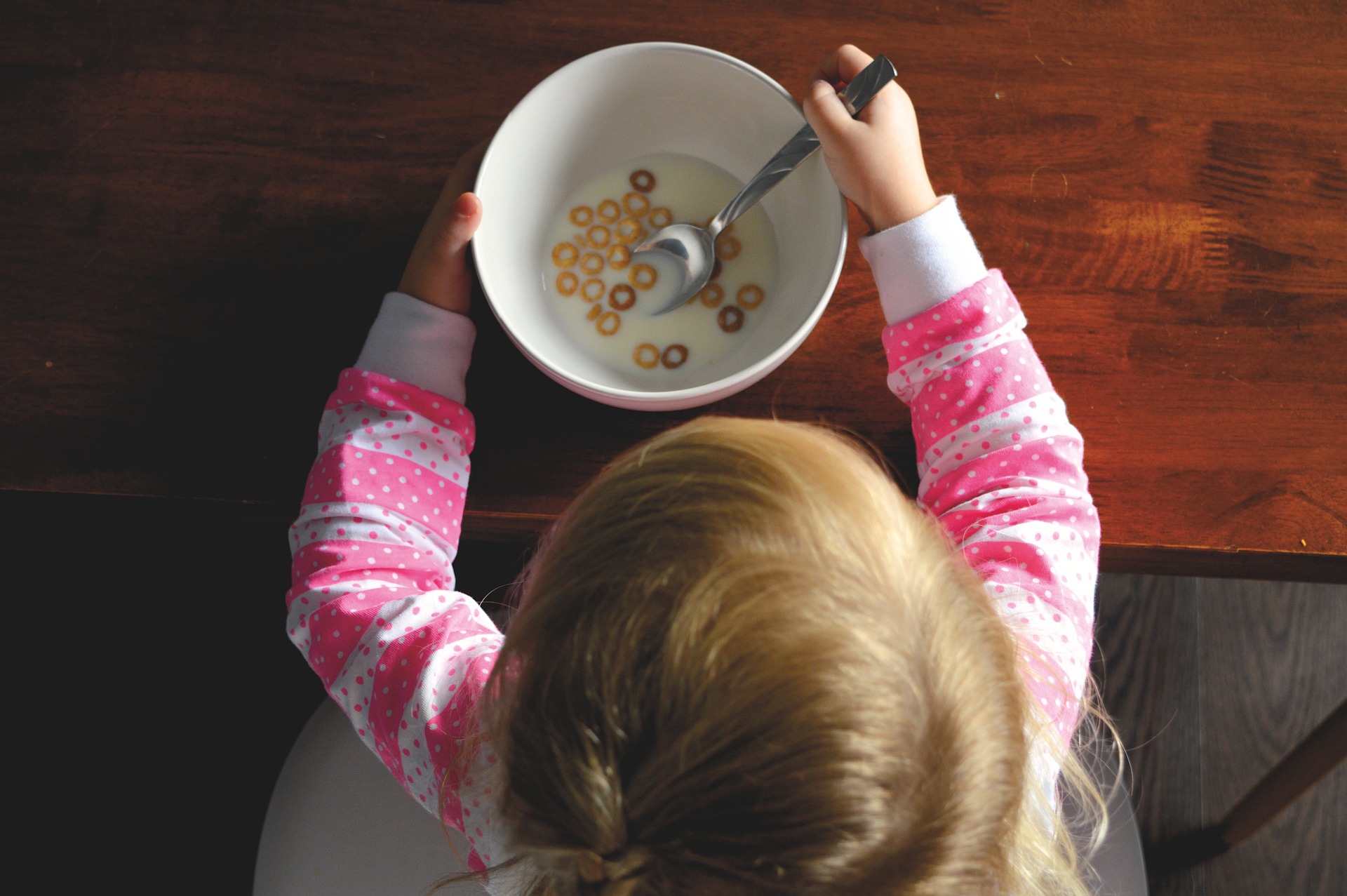To Help Foster a Healthy Relationship with Food and Body for your Children
What would I not say to my child as an eating disorder dietitian?
Raising children is tough, there is no doubt about it. Between mom shame, peer pressure, crazy schedules, etc. it seems there is always something taking up your time and brain space.
The last thing you likely want to read is an article about things you may be doing wrong, and I understand that even the title of this article may make you want to sigh and close the tab, but I urge you to keep reading.
In today’s article, I dive into five things I would avoid as a parent to help foster a healthy relationship with food and body for your children. As an eating disorder dietitian, this is a topic that means a lot to me, and I appreciate you taking the time to hear what I have to say!
Why is Fostering a Healthy Relationship With Food as a Parent Important?
This is in no way an insult to anyone’s parenting (of course, you are doing your best to raise happy and healthy children!) It is simply a list of behaviors you may not even realize can have an impact on a child’s relationship with food and their body.
As you read, it may be helpful to think back to your own childhood and the interactions you and your family had around food. How did some of those beliefs impact you later in life? Are there still beliefs around eating or your body that you are carrying from your childhood? And are those beliefs serving you today?
If the opinions you formed around food and your body were more harmful than helpful, remember: it is never too late to break a generational cycle.
Do you suspect that you or your child may be going through an eating disorder? Don’t worry- we’re here to help. Speak with an online eating disorder dietitian, like the ones on our team, to learn more about the next steps. You don’t have to go through this alone!
5 Things to Avoid as a Parent from an Eating Disorder Dietitian

Now, let’s dive into the five things to avoid as a parent in order to foster healthy relationships with food and body.
1. Never put your child on a diet or tell your child they need to lose weight.
I already know what you’re thinking. “But what if my child is overweight, then what?”. The answer is simple, love them anyway.
Bodies come in all shapes and sizes, and diversity is a good thing. Rather than feeling that you need to change or manipulate your child’s body, think about how you can remind them that their worth, health, and happiness are not attached to size or number.
A major risk for early dieting is the development of harmful habits and behaviors around food, studies show that children who diet are at an exponentially higher risk for developing an eating disorder.
If your child is the one inquiring about a diet or asking if he or she needs to lose weight, get curious with them. Ask about where these thoughts came from and what beliefs they might have about people of different body sizes.
2. Do not go on a diet yourself or discuss the pursuit of intentional weight loss.
If you are familiar with our practice or the premise of intuitive eating, you may know that the pursuit of intentional weight loss is not necessarily aligned with honoring our body’s needs and facilitating a healthy relationship with food and body.
Diets also have a very high fail rate, meaning even if you do everything “perfectly” and/or lose weight, there is still a high probability that you will gain the weight back (and sometimes more).
Outside of weight, diets often promote disordered eating behaviors such as restricting foods/food groups or eating in a particular time frame.
Long story short, they are not good for your overall health and wellbeing, and it would not be beneficial for little eyes to see the behaviors you’re engaging in when dieting and pursuing weight loss.
3. Avoid food morality and food shaming.
Although it may go against everything it feels like you’ve been taught growing up, giving foods the label of “good” and “bad” will not help a child (or anyone for that matter!) develop a good relationship with food.
Assigning food morality allows it to impart morality on us. Confusing? Think about it this way.
The last time you ate a food you viewed as “bad,” did it result in feelings of guilt, shame, or disappointment? If so, that is normal when we are stuck in the diet mentality and accustomed to labeling foods in this way.
In intuitive eating, we often refer to foods as nutrient-dense or fun foods/play foods. Although we recognize that foods have different properties and interact differently in our bodies, there is still room for both our meals and snacks.
(Note: this also applies to the labeling of foods as clean vs. unclean, guilty vs. guilt-free, junk food vs. allowed food, etc.)

4. Never body shame your child, yourself, or others.
Speaking poorly about your child’s body can have a major impact on self-esteem and be very confusing for a young mind.
Children are often eager to impress adults, especially their parents, and it can feel disconcerting for a child to be shamed, mocked, or criticized for something that is completely outside of their control.
It may sound surprising, but speaking poorly about your own body or others’ bodies can also have a lasting impression. Imagine hearing your parents critique their appearance in a mirror, it is only natural to begin to associate normal things like fat, cellulite, rolls, etc. as something that is bad or something to be ashamed of.
If you haven’t already, check out our full post on how body image can affect a person’s health. It is a must-read!
5. Never force your child to finish everything on their plate or restrict food when they say they are hungry.
To raise intuitive eaters who learn to trust their body’s cues, it’s important to allow them to respond to those cues!
Although many of us grew up in the “clean plate club” era, there is actually no real prize for finishing everything on our plate, especially if we deny our internal signals in the process.
If a child isn’t hungry or not hungry enough to finish everything on their plate, that is okay (and it does not mean your cooking is bad or they’re not appreciative of the meal).
On the other hand, if your child is expressing hunger, they deserve to honor that hunger and have access to something to eat.
I was recently shopping at the grocery store when I overheard a child tell their parent they were hungry. The parent responded with, “No, you’re not, you just ate”. This may seem like a fairly trivial exchange, but it’s just one example of how easy it can be to dismiss and deny a body cue and can cause a child to question their own internal wisdom and signals.
Ask the Eating Disorder Dietitian: The Takeaway

I know that parenting can be complicated, and raising children isn’t a linear path. Expect ups and downs and bumps and bruises along the way. You’re doing the best you can!
It is never too late to break a cycle and allow yourself to reconnect with your own inner wisdom. Taking care of yourself and healing your inner food critic will help you pass that down to your children.
If you are struggling with your relationship with food or body and want to learn how to better model a good relationship for your children, check out our Signature Intuitive Eating Program.
Looking for a more self-paced option? Not ready to commit to 1:1 nutrition coaching? Make peace with food and learn how to nourish your body for life as an intuitive eater with our Nourished Body Basics Self-Paced Course!

LEAVE A COMMENT
Comments